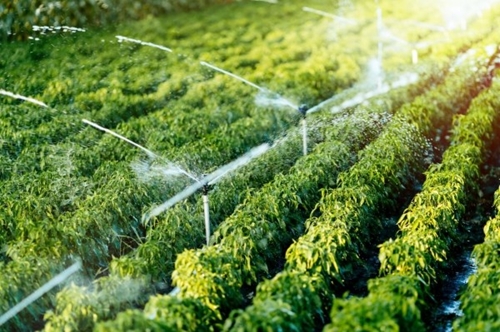The MARD said agro-forestry-fishery products of Vietnam have been exported to 200 countries and territories, including demanding markets like the U.S., the E.U., and Japan.
    |
 |
|
(Photo for illustration: nongnghiep.vn) |
Among them, the E.U. is a potential buyer of many key farm produce, and opportunities have become even bigger since the E.U. - Vietnam Free Trade Agreement (EVFTA) was signed.
More than 10 groups of commodities have posted over 1 billion USD in annual export revenue, including fruits and vegetables, rice, coffee, cashew nut, peppercorn, and wood products, statistics show.
The MARD attributed such achievements to science and technology, which have contributed to over 35% of the country’s agricultural production.
During 2020 - 2023, Vietnamese scientists have created 148 crop varieties and 36 technical advances recognized by the MARD, helping increase productivity and quality to serve domestic consumption and export.
    |
 |
|
Workers clean mangoes before processing. |
In particular, the effective application of science and technology to crop cultivation has helped step up crop restructuring, improve varieties, and prevent pests and diseases, thereby raising the productivity and quality of many plants such as orange, tangerine, and pomelo. The expanding use of high-quality rice varieties has also gradually promoted the value of the Vietnamese rice brand in the international market.
The Cong Thuong (Industry & Trade) newspaper cited Deputy Minister Phung Duc Tien as saying that thanks to science and technology application, Vietnam has recorded higher productivity in the farming of some animals and crops compared to other countries in the region and the world. For example, it currently ranks first among ASEAN members in the productivity of unmilled rice, second in the world in coffee, and first globally in peppercorn.
Meanwhile, Nguyen Huu Minh, Deputy Director of the MARD’s Science, Technology and Environment Department, held that science and technology application to agriculture has proved fruitful, but remains small and fragmented.
The private sector’s engagement in scientific research and development is still limited while the quantity and quality of human resources in this field remain modest. Research units also lack connectivity with businesses, he pointed out.
Tran Thi Lan Anh, Secretary General of the Vietnam Chamber of Commerce and Industry (VCCI), said the country’s agro-forestry-fishery exports have been growing continually, making substantial contributions to total overseas shipments and national economic development.
However, she noted, if the reform of processing technology is slow, it will be hard for agricultural products to increase export value and expand markets.
To strengthen the agricultural sector’s export capacity, it is necessary to take comprehensive measures to boost development under value chains and especially, assist agricultural companies to apply science - technology, carry out innovation, and digitize production and processing to meet quality standards, according to Anh.
Source: VNA